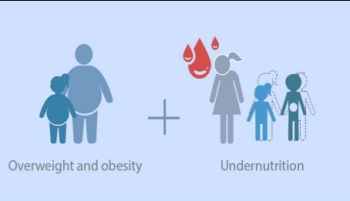Double burden of malnutrition among mothers and their under five children in rural areas of Oyo State, Nigeria
Abstract
Background/Objective: Double burden of malnutrition, characterized by undernutrition among poor children and overnutrition among disadvantaged adults coexisting in the same population group or household, is a serious global problem. The objective of this study was to assess double burden of malnutrition among mothers and their under-five children in rural communities of Ibadan, Nigeria.
Methods: This cross-sectional and descriptive study adopted a two-stage random sampling to recruit 217 mother-child pairs from 18 rural communities in Ido and Akinyele Local Government Areas of Ibadan. A semi-structured, interviewer-administered questionnaire was used to obtain information on socio-demographic characteristics and personal characteristics of mothers and their under-five children respectively. Anthropometric characteristics of mothers was obtained and their Body Mass Index (BMI) was determined using WHO classification. Children anthropometry was measured and expressed as stunting (height-for-age), wasting (weight-for-height) and underweight (weight-for-age) using WHO Anthro. Data were analyzed using descriptive statistics, Chi-square test, and correlation at 0.05 level of significance.
Results: Age of mothers and under-five children were 32.3±6.2 years and 35.3±14.1 months respectively. Household size was 6.3±1.7 and 62.2% had no formal education. Underweight, overweight and obesity among mothers were 9.2%, 15.2% and 3.2%, respectively. Among children, underweight, stunting and wasting were 30.4%, 40.6% and 7.8%, respectively. Household size was significantly associated with stunting. Mothers’ BMI was positively and significantly correlated with height-for-age (r=0.173), weight-for-height (r=0.150) and weight-for-age (r=0.250) in children.
Conclusion: This study confirms coexistence of double burden of malnutrition at household level in this rural areas of Ibadan, Nigeria. That is the concurrence of child undernutrition and maternal under and overnutrition in the same household surveyed, which was characterized by a high prevalence of undernutrition particularly stunting early in life. Therefore, a comprehensive nutritional programme that is context-specific targeted at rural women and their children should be implemented.
Keywords: Overnutrition, Rural women, Under-five children, Nutritional status, undernutrition

Authors retain all copyrights. In making a submission to World Nutrition, they are certifying that all material is theirs except quotations, as indicated, and that they have obtained permission for any photos, tables, or graphics taken from other publications or websites.




